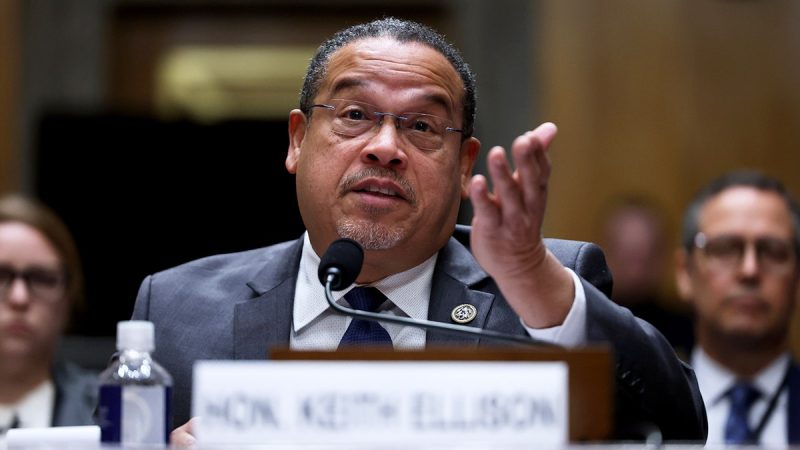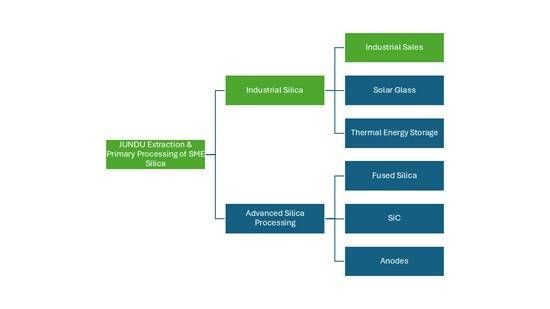The world’s most popular laptop gets even better with the incredible performance of M5, double the starting storage, and improved wireless connectivity, packed into a thin, light, and durable aluminum design

Apple® today announced the new MacBook Air ® with M5, bringing exceptional performance and expanded AI capabilities to the world’s most popular laptop. M5 features a faster CPU and next-generation GPU with a Neural Accelerator in each core, enabling MacBook Air to power through a variety of workflows, from creative projects to complex AI tasks. MacBook Air now comes standard with double the starting storage at 512GB with faster SSD technology, and is configurable up to 4TB, so customers can keep their most important work on hand. Apple’s N1 wireless chip delivers Wi-Fi 7 and Bluetooth 6 for seamless connectivity on the go. MacBook Air features a beautifully thin, light, and durable aluminum design, stunning Liquid Retina® display, 12MP Center Stage® camera, up to 18 hours of battery life, an immersive sound system with Spatial Audio, and two Thunderbolt 4 ports with support for up to two external displays. Combined with the power of macOS® Tahoe and Apple Intelligence , MacBook Air delivers unmatched value for college students and creative professionals, and it’s the most popular laptop for business users. Available in 13- and 15-inch models in sky blue, midnight, starlight, and silver, the new MacBook Air with M5 is available for pre-order starting tomorrow, March 4, with availability beginning Wednesday, March 11.
, MacBook Air delivers unmatched value for college students and creative professionals, and it’s the most popular laptop for business users. Available in 13- and 15-inch models in sky blue, midnight, starlight, and silver, the new MacBook Air with M5 is available for pre-order starting tomorrow, March 4, with availability beginning Wednesday, March 11.
‘The new MacBook Air with M5 brings incredible performance and even more capability to the world’s most popular laptop,’ said John Ternus, Apple’s senior vice president of Hardware Engineering. ‘With M5, MacBook Air powers through a wide range of tasks, from everyday productivity to creative workloads, and is even faster for AI. Now featuring double the starting storage, as well as Wi-Fi 7 and Bluetooth 6, in a sleek and durable design with long battery life, MacBook Air is the perfect laptop for anyone who values the unrivaled combination of performance and portability.’
Incredible Performance with M5 — for AI and Beyond
M5 delivers incredible performance for everything users want to tackle, from everyday productivity to creative workflows. MacBook Air with M5 features a 10-core CPU with the world’s fastest CPU core for even more responsiveness. 1 Combined with an up-to-10-core GPU with a powerful Neural Accelerator in each core, MacBook Air with M5 delivers up to 4x faster performance for AI tasks than MacBook Air with M4, and up to 9.5x faster than MacBook Air with M1. 2 This makes it an incredibly capable platform for AI — whether using Apple Intelligence across apps and system experiences at home, or running LLMs on device in an enterprise. 3
With enhanced shader cores and a third-generation ray-tracing engine, M5 supercharges tasks like gaming and 3D rendering. M5 also features faster unified memory with 153GB/s of bandwidth — a 28 percent improvement over M4 — enabling even smoother multitasking and faster app launches. All combined, MacBook Air with M5 brings even greater performance compared to previous generations, offering:
— Up to 6.9x faster AI video enhancement performance in Topaz Video when compared to MacBook Air with M1, and up to 1.9x faster than MacBook Air with M4. 2
— Up to 6.5x faster 3D rendering with ray-tracing performance in Blender when compared to MacBook Air with M1, and up to 1.5x faster than MacBook Air with M4. 4,5
— Up to 2.7x faster image processing performance in Affinity when compared to MacBook Air with M1, and up to 1.5x faster than MacBook Air with M4. 2
— Web browsing is up to 50 percent faster when compared to a PC laptop with an Intel Core Ultra X7 processor, and more demanding tasks get up to 2x faster performance. 2
Double the Starting Storage and a Faster SSD
MacBook Air with M5 now comes standard with 512GB of storage — double that of the previous generation — and can be configured up to 4TB for the first time, providing ample space for large projects and games. The new SSD also delivers 2x faster read/write performance compared to the previous generation, significantly accelerating file access and speeding up workflows for users, such as creators importing large photo libraries and students running AI workloads on device. 5
Tremendous Value for Upgraders with the World’s Most Popular Laptop
There’s never been a better time for customers upgrading from a previous generation of MacBook Air with Apple silicon or an Intel-based Mac®. In addition to the blazing performance of M5, the new MacBook Air delivers a broad range of compelling features, including:
A stunning Liquid Retina display : A brilliant 13.6- or 15.3-inch Liquid Retina display with 500 nits of brightness and support for 1 billion colors makes content look vivid with sharp detail, and text appears super crisp.
Exceptional battery life : Up to 18 hours of battery life — six additional hours when compared to an Intel-based MacBook Air — with fast-charge capability means users can work, create, or play all day without plugging in. 2
Beautiful design and colors : The 13-inch MacBook Air provides the ultimate in portability for users on the go, while the 15-inch model offers even more screen real estate for multitasking. Both models feature a thin, light, and completely silent fanless design that’s available in four gorgeous colors: sky blue, midnight, starlight, and silver.
Advanced camera, mics, and speakers : A 12MP Center Stage camera with support for Desk View keeps users looking great and enables more engaging video calls; a three-mic array brings enhanced voice clarity; and an immersive sound system with support for Spatial Audio and Dolby Atmos creates an enjoyable three-dimensional soundstage for music and movies.
Wi-Fi 7 and Bluetooth 6 : N1, the new Apple-designed wireless networking chip, enables Wi-Fi 7 and Bluetooth 6, delivering improved performance and reliability.
Seamless connectivity : MacBook Air features two Thunderbolt 4 ports for connecting accessories with support for up to two external displays — ideal for professionals and students who need to expand their workspace. MagSafe® enables dedicated charging and peace of mind when users are plugged in.
The Power of macOS Tahoe
macOS completes the MacBook Air experience, with incredible features and built-in apps, such as Safari®, Photos, Messages, and FaceTime®, that enable users to get even more done. With macOS Tahoe, a beautiful design with Liquid Glass lets users personalize their Mac in new ways with color options for folders, app icons, and widgets. 6 Apple Intelligence adds powerful features with groundbreaking privacy at every step — including Live Translation in Messages to communicate across languages, updates in Reminders that automatically categorize the most relevant actions, and more powerful Shortcuts actions that tap directly in to Apple Intelligence models to create automations, such as extracting information from a PDF and adding key details to a spreadsheet. 3 Continuity features include the Phone app on Mac, which lets users relay cellular calls from their nearby iPhone®, and they can stay on top of notifications with Live Activities, which open in iPhone Mirroring so users can take immediate action right from their Mac. 7 Additionally, for video calls, a new Edge Light effect provides a pleasing fill light to evenly illuminate a user’s face in any lighting condition.
MacBook Air and the Environment
MacBook Air with M5 was built with the environment in mind, and brings Apple even closer to reaching its ambitious plan to be carbon neutral across its entire footprint by 2030. It is made with 55 percent recycled content, 8 including 100 percent recycled aluminum in the enclosure and 100 percent recycled cobalt in the battery. It is manufactured with 50 percent renewable electricity, such as wind and solar, across the supply chain. MacBook Air is designed to be durable and repairable, while meeting Apple’s high standards for energy efficiency and safer chemistry. The paper packaging is 100 percent fiber-based and can be easily recycled. 9
Pricing and Availability
- The 13-inch MacBook Air with M5 starts at $1,099 (U.S.), and $999 (U.S.) for education, and the 15-inch MacBook Air with M5 starts at $1,299 (U.S.) and $1,199 (U.S.) for education. Both are available in sky blue, midnight, starlight, and silver.
Apple revolutionized personal technology with the introduction of the Macintosh in 1984. Today, Apple leads the world in innovation with iPhone, iPad, Mac, AirPods, Apple Watch, and Apple Vision Pro. Apple’s six software platforms — iOS, iPadOS, macOS, watchOS, visionOS, and tvOS — provide seamless experiences across all Apple devices and empower people with breakthrough services including the App Store, Apple Music, Apple Pay, iCloud, and Apple TV. Apple’s more than 150,000 employees are dedicated to making the best products on earth and to leaving the world better than we found it.
1 Testing was conducted by Apple in February 2025 using shipping competitive systems and select industry-standard benchmarks.
2 Testing was conducted by Apple in February 2026. See apple.com/macbook-air for more information.
3 Apple Intelligence is available in beta with support for these languages: English, Danish, Dutch, French, German, Italian, Norwegian, Portuguese, Spanish, Swedish, Turkish, Vietnamese, Chinese (simplified), Chinese (traditional), Japanese, and Korean. Some features may not be available in all regions or languages. For feature and language availability and system requirements, see support.apple.com/en-us/121115 .
4 Results are compared to MacBook Air with Apple M1, 8-core CPU, 8-core GPU, 16GB of unified memory, and a 2TB SSD.
5 Results are compared to MacBook Air systems with Apple M4, 10-core CPU, 10-core GPU, 32GB of unified memory, and a 2TB SSD.
6 macOS Tahoe is available as a free software update. Some features may not be available in all regions or in all languages. See requirements at apple.com/os/macos .
7 Requires that iPhone, with an active carrier plan, and Mac are signed in with the same Apple Account, iPhone and Mac are near each other, signed in to FaceTime with the same Apple Account, have Wi-Fi turned on, and are connected to the same network.
8 Product recycled or renewable content is the mass of certified recycled material relative to the overall mass of the device, not including packaging or in-box accessories.
9 Breakdown of U.S. retail packaging by weight. Adhesives, inks, and coatings are excluded from calculations.
NOTE TO EDITORS: For additional information visit Apple Newsroom ( www.apple.com/newsroom ), or email Apple’s Media Helpline at media.help@apple.com .
© 2026 Apple Inc. All rights reserved. Apple, the Apple logo, MacBook Air, Liquid Retina, Center Stage, macOS, Apple Intelligence, Mac, MagSafe, Safari, FaceTime, iPhone, Apple Store, Apple Trade In, AppleCare, AppleCare+, AppleCare One, Today at Apple, Apple Card, and Daily Cash are trademarks of Apple. Other company and product names may be trademarks of their respective owners.

View source version on businesswire.com: https://www.businesswire.com/news/home/20260303467986/en/
Press Contacts:
Jessica Reeves
Apple
j_reeves@apple.com
Starlayne Meza
Apple
starlayne_meza@apple.com











 features; and the power of macOS® Tahoe. The new MacBook Pro comes in space black and silver, and is available to pre-order starting tomorrow, March 4, with availability beginning Wednesday, March 11.
features; and the power of macOS® Tahoe. The new MacBook Pro comes in space black and silver, and is available to pre-order starting tomorrow, March 4, with availability beginning Wednesday, March 11. 

















